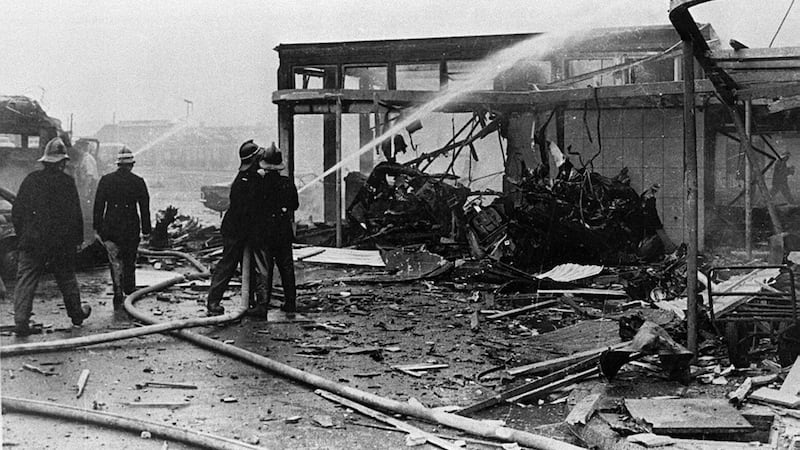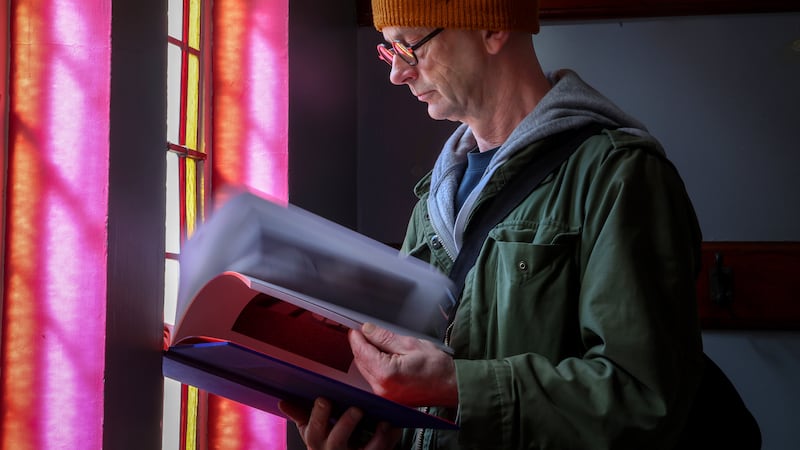HERE'S the thing about Northern Ireland. Because of our troubled and bloody past, there isn't a week that goes past that won't mark the anniversary of a murder or event that impacted a family and community here. That is a lot of pain and trauma.
Last week was the 50th anniversary of Bloody Friday. Nine people died and more than 130 were injured when 19 IRA bombs exploded within an hour on July 21 1972. The loved ones of those murdered still endure horrific memories and have lived their lives despite time standing still when the explosions ripped through the city centre.
Two months ago we saw the Dublin and Monaghan bombs marked. At the end of this month we will see the victims of the Claudy bomb remembered and think on the Miami Showband massacre victims. Next month we will see the anniversary of the Omagh bomb. And on and on it goes, with murders of people enjoying a night out or shot dead on their doorstep after answering a knock late at night.
There is so much heartache woven into our society, and so much hatred because of the hurts we bestowed upon one another. This hurt is often compounded by lack of justice and lack of closure. People can't move on if they feel their loved ones are thought of as nothing, their murder not worthy of investigation, their lives not worthy of the truth being told, not worthy of being shown respect and dignity.
In fact, in some quarters, those who murdered their loved ones are hailed as heroes and have commemorations held for them annually.
Last week, a friend of mine put a post up on social media saying that the coverage of Bloody Friday reminded him of why he will never regard the IRA as heroes. He suggested young people should read about the horrors inflicted that day, about the families left behind, and that if they did there might be less inclination for young people born into peace to sing 'Up the 'RA' songs.
The hundreds of vicious and hate filled comments underneath his status made flesh the notion that we are a seriously sick society that's a long way off normal and thriving. How anyone can gloat about vicious murders and brutal atrocities and glorify those who carried them out is beyond most reasonable people's comprehension.
But the fact is that the generation who lived through the horrors are encouraging this behaviour, and not just within the realms of social media. They are prolonging the hate, promoting the pain, singing the songs, holding the commemorations, waving the flags, unveiling the murals.
There are plenty in our communities and indeed in our political spheres who will hold up murderers as heroes and icons, be that the British soldiers who gun down innocent people on their own streets or IRA members who blow city centres to smithereens. Both sides are equally guilty of this hero worship and romanticising the past to suit their narrative.
The problem with that – apart from it compounding the hurt felt by the families of those lost – is that it poisons yet another generation of Northern Irish youth who will justify murder, prolong the suffering of victims and aid division.
The voices that need to be heard by our young people are those of the victims and their families. The people who will break your heart with their words after their loved one didn't come home. The stories you can barely listen to because they are so painful, the stories of loss, of empty chairs, of memorable days forever tinged with sadness, of cold, windy graveyards and nights spent crying over horrific memories.
As a journalist, I have heard them all. I have sat with daughters whose fathers were gunned down in front of them. I have sat with wives who were handed back a piece of cardigan – all that was left of their husband who was blown up. I have sat with a mother whose young daughter's dead body was carried to her from the rubble of a bomb, with a daughter who sat with her daddy as he bled out on their doorstep.
Bullets don't stop, they travel. The people who brought murder to innocents and a lifetime of pain and suffering to those who loved them should never be hailed heroes. They are quite the opposite. That is the story we would need to be telling our young people.








